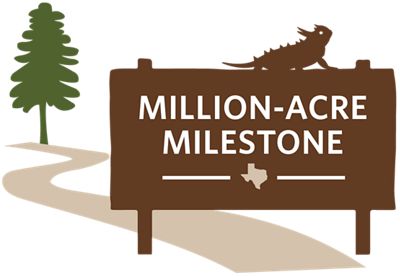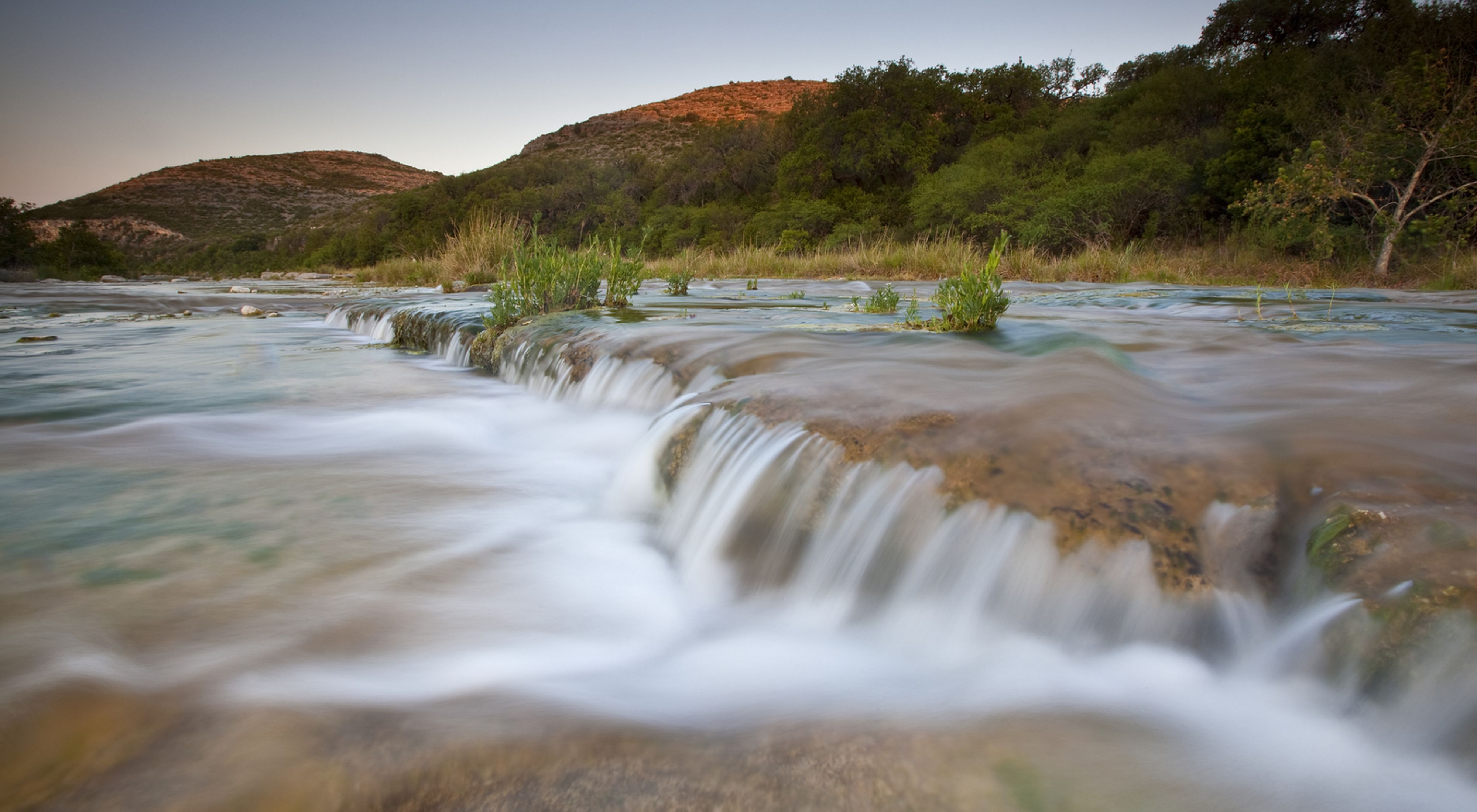The Nature Conservancy Protects 1 Million Acres of Land and Water in Texas
Thanks to the help of partners and supporters, TNC has reached a major milestone for land protection in the Lone Star State.
Media Contacts
-
Claire Everett
Communications Manager
The Nature Conservancy in Texas
Email: claire.everett@tnc.org
After 60 years of work in the Lone Star State, The Nature Conservancy in Texas (TNC) reached this significant conservation achievement at a time when land and water preservation is more urgent than ever: protecting 1 million acres of Texas lands.
As Texas continues to rapidly grow and develop, one million acres of land and more than 200 miles of rivers and streams protected in perpetuity is a critical contribution to our state’s health.
TNC’s network of resilient acreage protects land, water, and wildlife across Texas with a combined area three times the size of San Antonio. The million acres protected by TNC include 37 nature preserves and properties, sizeable portions of 34 Texas state and national parks, and nearly a half-million acres of family farms and ranches. Texans of all ages enjoy these beaches and riversides to relax, to fish, hike, picnic and maybe catch a glimpse of a roadrunner or migrating monarch.
“Texas is home to an incredibly diverse landscape, from the Gulf Coast to the Davis Mountains to deep East Texas forestlands,” said Jeff Francell, associate director of land protection for TNC in Texas. “Working with private landowners and great partners, The Nature Conservancy has helped protect land and natural resources in all of those places, much of which is now part of our state and national park systems.”
In 1965, the newly formed Texas chapter of The Nature Conservancy purchased more than 2,500 acres 60 miles west of Houston (with another 800-plus acres added later) that eventually formed the Attwater Prairie Chicken National Wildlife Refuge. Since then, TNC has played major roles in the creation of iconic parks including Enchanted Rock State Natural Area, Big Bend National Park, South Padre Island State Park and Powderhorn Wildlife Management Area, among others.
“The stacked benefits that land protection and conservation bring, such as increased biodiversity and improved water quality and quantity, reach far beyond protected landscapes,” said Texas State Director Suzanne Scott. “We work with some of the smartest and most passionate private landowners to get big things done.”
David Honeycutt worked with TNC to donate a 366-acre conservation easement on his Devils River ranch to protect the property in perpetuity.
“The easement on my ranch doesn’t just safeguard it for me and my family — the benefits have been critical to reducing fragmentation along the Devils River and helping to protect the water quality of this spring-fed oasis,” said Honeycutt. “Conservation restrictions are negotiated and have little or no impact on the quiet enjoyment of your property generationally. In fact, for a conservation buyer, an existing conservation easement can be a highly desirable attribute to a rural ranch property.”
“TNC has strategically used conservation easements as a very successful tool to protect nearly half of the 1 million acres of protected Texas land,” he added.
Out of the million acres, 434,000 acres have been protected through conservation easements with landowners, ranchers and farmers.
While this milestone is a monumental one, much more conservation work is needed to ensure our state’s resilience and prosperity. According to research from Texas A&M Natural Resources Institute, just 4% of the Texas landscape is currently protected from development under federal, state, local or private mechanisms and just 3% is accessible for public use.
“In our state, where more than 95% of land is privately owned, the impact of conservation is critically important and has lasting effects,” Scott said. “We’re thrilled to have played a part in the protection of one million acres of Lone Star lands and are already working with landowners, partners, and donors on securing the next million acres.”
Learn more at nature.org/millionacremilestone.

The Nature Conservancy is a global conservation organization dedicated to conserving the lands and waters on which all life depends. Guided by science, we create innovative, on-the-ground solutions to our world’s toughest challenges so that nature and people can thrive together. We are tackling climate change, conserving lands, waters and oceans at an unprecedented scale, providing food and water sustainably and helping make cities more sustainable. The Nature Conservancy is working to make a lasting difference around the world in 81 countries and territories (40 by direct conservation impact and 41 through partners) through a collaborative approach that engages local communities, governments, the private sector, and other partners. To learn more, visit nature.org or follow @nature_press on X.
